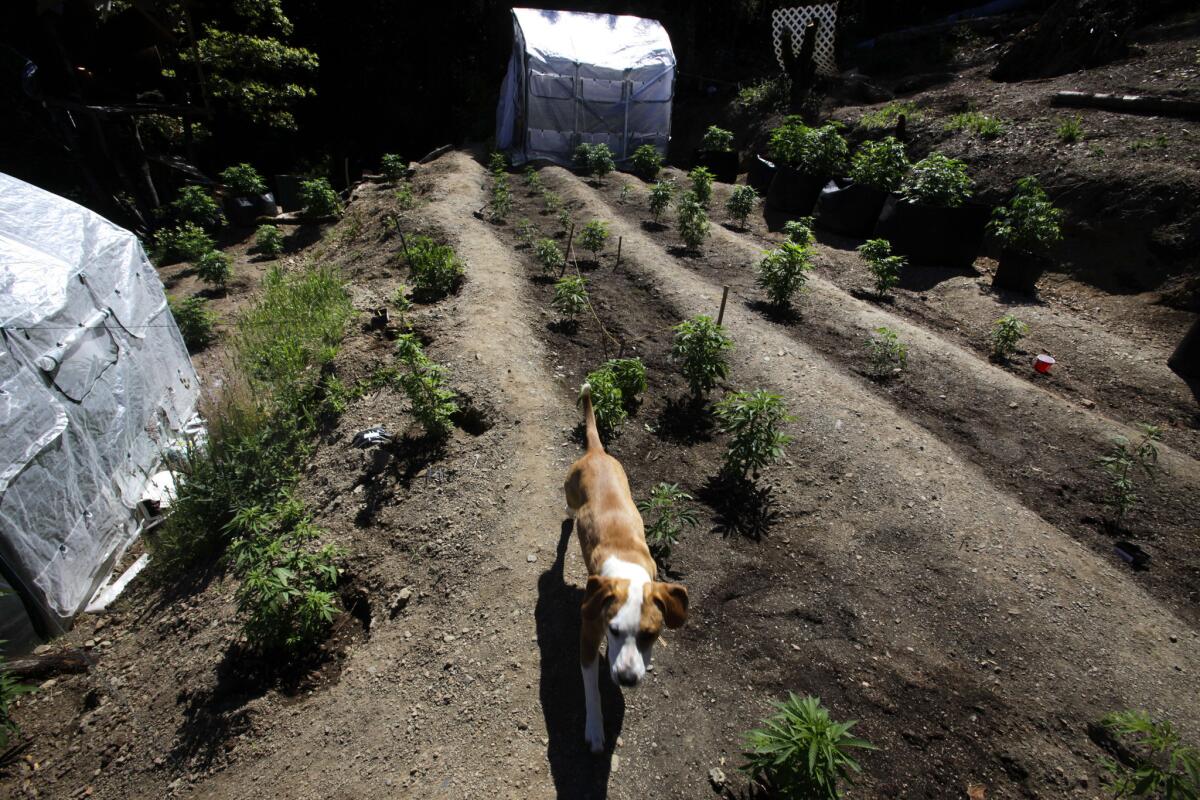Marijuana growers are new drought target

A dog patrols marijuana plants growing in Shelter Cove in Humboldt County, the center of California’s marijuana outback. Water quality control boards around the state have begun cracking down on practices that affect local water supplies.
- Share via
Pot growers have been put on notice by state regulators that they will have to follow the same rules as the rest of the agriculture industry in protecting the state’s drought-stricken water supply.
The Central Valley Regional Water Quality Control Board issued an order Friday that will require medicinal marijuana cultivators to obtain permits to divert or store water. It also pushes them to use drip irrigation and other conservation measures, and avoid vegetation-clearing activities and other practices that add sediment and fertilizer to local waterways.
The board was the second to enact tighter regulation aimed at water use and land practices by the burgeoning marijuana industry, which supplies the state’s medical marijuana clinics. Last month, the North Coast Regional Water Quality Control Board issued an order with similar requirements.
The moves come more than three months after the Central Valley board and state wildlife officials issued a record-setting $297,000 fine against a marijuana cultivator and property owner in Shasta County over illegal grading that jeopardized a local waterway.
It is the first time that the water agency has officially set so-called best management practices for marijuana cultivation.
“Our goal is to protect water quality and the environment from the significant impacts that may occur from cannabis cultivation,” said Pamela Creedon, executive officer of the Central Valley water board.
Illegal marijuana cultivation has increased in areas governed by both water boards, and these agencies, along with law enforcement, have taken a lead role in cracking down on their water-use practices.
Follow me on Twitter: @LATgeoffmohan
More to Read
Inside the business of entertainment
The Wide Shot brings you news, analysis and insights on everything from streaming wars to production — and what it all means for the future.
You may occasionally receive promotional content from the Los Angeles Times.











